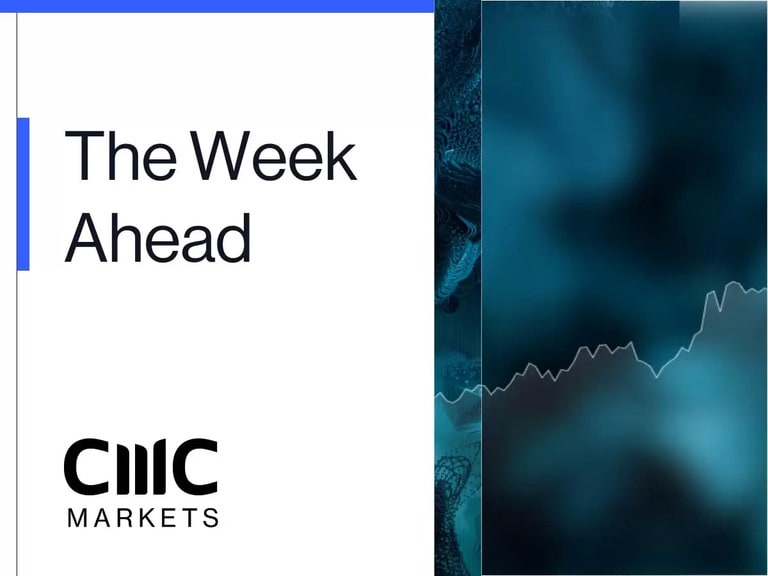While US markets by and large have managed to retain their resilience, with new record highs for the Dow, S&P500 and Russell 2000 last week, the gains have been notably in sectors left behind by the huge tech rally that has help support most of the move higher in US equities over the last few years.
US financials for example are now trading well above the previous record highs that we saw in 2007, and which were previously fleetingly matched at the beginning of last year, pre-pandemic.
Rising bond yields, with the US 10-year yield now above 1.62%, and at a one year high, have served to cast doubt about the longer-term sustainability of some of the more expensive areas of the US market, and through we did see the Nasdaq break a run of three successive weeks of losses, the continued rise in US long term yields is prompting some anxiety about sky high valuations across a number of areas.
There appears to be no such concern around valuations in Europe with the Stoxx600 posting its best weekly gain since November, while the DAX posted fresh record highs in four out of five days last week.
The FTSE100 also posted its best daily close since mid-January at the end of last week, while the FTSE250 closed at a 13-month high.
There appears to be increasing optimism that with the signing last week of the $1.9trn stimulus deal, which made it through both US houses undiluted, that we look set for a big economic rebound in the second half of this year, with the risk we could also see a sharp rise in inflationary risk, which might force the US Federal Reserve to tighten monetary policy sooner rather than later.
President Biden’s assertion that the US could well see a return to normal by the 4th July also played a part in the sharp rise in yields, and with another $1,400 about to hit the banks of most Americans, we look set to see the impact of a lot of extra juice making its way into the US economy, and possibly into the stock market as well.
Senior Fed officials have been quite insistent in recent briefings that they would be reluctant to do this, however the market may force them into a position where they might well be forced to, with this weeks Fed meeting likely to be a key litmus test in how Fed officials, and more importantly Jerome Powell navigates what is likely to be a crucial message, when it comes to keeping a lid on US 10-year yields which have risen over 70bp since the beginning of the year.
This morning’s European open is expected to pick up where we left off last week, despite a lacklustre Asia session which saw the latest Chinese retail sales and industrial production data get off to a reasonably strong start for 2021.
There was a little bit of a reluctance on the part of Chinese consumers to get back to the levels of spending we saw at the end of 2019, throughout most of last year, largely due to the lockdown seen at the start of the year, with a cautious return to growth to August, a good six months after the initial shutdown of the economy. This cautious approach does now appear to be changing as the likelihood of a second wave diminishes, with retail sales for the first two months of this year rising 33.8%. While this may seem a fairly high number, and did come in above expectations, it does need to be set in the context of last year when China went into lockdown for all of February, and therefore consumer spending fell back sharply.
Industrial production also saw a decent increase, with the numbers also similarly flattered by last year's weak comparatives, coming in with a rise of 35.1%.
When the comparatives are stripped out the numbers are still fairly decent, however they still point to an uneven recovery as unemployment also came in higher, coming in at 5.5%.
The euro appears to have shrugged off the stunning defeats suffered by German Chancellor Angela Merkel’s CDU in regional elections at the weekend. The Greens saw big gains in Baden-Wuerttemberg, and also did well in the Rhineland, as voters gave their verdicts on the German government’s bungled vaccine rollout response. It also calls into question as to what type of government Germany will be left with in the upcoming autumn elections, given that Chancellor Merkel is stepping down and isn’t running. The CDU is still likely to be the largest party, however they still don’t have a clear front runner in the race to replace her, and this result is only likely to increase party wrangling.
The US dollar is also expected to be in focus this week, with the Fed meeting due to start tomorrow, and the focus expected to be on the recent surge higher in longer term borrowing costs .
Bitcoin also hit a new record high over the weekend, moving above $60k for the first time, as the frenzy around the crypto currency pushes it ever higher.
EURUSD – despite finding support just above the 200-day MA last week, the current rebound looks shaky. We need to get above the 1.2050 to stabilise or risk a retest of 1.1800, and possibly lower.
GBPUSD – last week’s lows fell short of the key 1.3750 key support area. While above this level and the 50-day MA the bias remains for further gains, with a move above 1.4030 retargeting the February highs at 1.4230. Only a move below 1.3720 undermines this scenario, and argues for a move towards 1.3580.
EURGBP – the 0.8540 area remains a key support, with the bias remaining for a move lower towards 0.8400. Any rebound needs to overcome the 0.8730 to delay this outcome with any squeeze likely to find 0.8800 a huge obstacle.
USDJPY – finding some resistance at 109.30, but remains on course for the 110.00 level while above the 108.20 area. At current levels we do remain susceptible to a pullback towards the 107.30 area in the interim. The current uptrend from the January lows lies all the way back at the 200-day MA and 105.60 area.
CMC Markets erbjuder sin tjänst som ”execution only”. Detta material (antingen uttryckt eller inte) är endast för allmän information och tar inte hänsyn till dina personliga omständigheter eller mål. Ingenting i detta material är (eller bör anses vara) finansiella, investeringar eller andra råd som beroende bör läggas på. Inget yttrande i materialet utgör en rekommendation från CMC Markets eller författaren om en viss investering, säkerhet, transaktion eller investeringsstrategi. Detta innehåll har inte skapats i enlighet med de regler som finns för oberoende investeringsrådgivning. Även om vi inte uttryckligen hindras från att handla innan vi har tillhandhållit detta innehåll försöker vi inte dra nytta av det innan det sprids.






